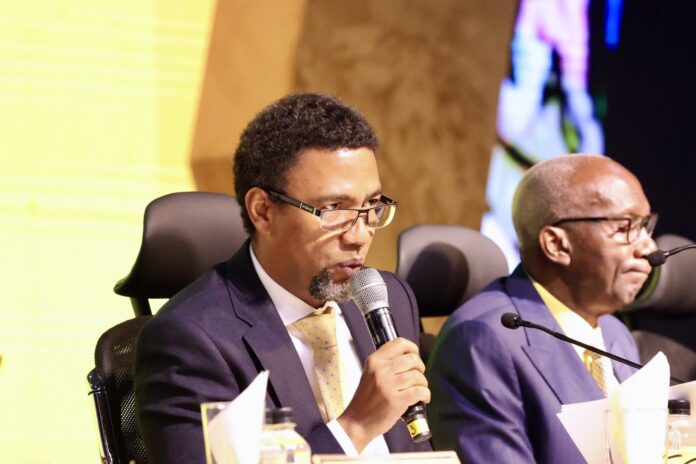Karl Toriola, the CEO of MTN Nigeria, has raised alarm about the severe problems confronting Nigeria’s telecommunications sector.
Speaking at a recent investment forum in Lagos, Toriola described the industry as being in a “deep crisis,” with rising costs and unsustainable pricing threatening its future.
The forum, organized by the Financial Derivatives Company (FDC), brought together key players in the telecom sector to discuss the challenges and opportunities facing the industry.
Toriola’s remarks highlighted the urgent need for action to prevent a complete breakdown of the sector, which has been a crucial part of Nigeria’s economic growth over the past two decades.
Toriola pointed out that despite significant advancements and growth following the liberalization of the telecom industry, the sector is now at a critical juncture. According to MTN Nigeria’s 2023 financial report, the company experienced a substantial loss of ₦137 billion, a sharp decline from the ₦348 billion profit recorded in 2022.
This drastic drop in financial performance is attributed to several factors, including rising inflation, currency devaluation, and foreign exchange shortages, which have been compounded by geopolitical disruptions and cash flow problems earlier in the year.
The CEO warned that if the situation does not improve, new investments in the sector might cease altogether. He explained that the current pricing model is no longer viable and must be revised.
“There’s no way under the surface of the earth, in the kind of inflationary environment and forex devaluation that we’ve seen, that an industry can maintain prices the same for 11 years,” Toriola stated.
Toriola emphasized that increasing prices is now an “absolute necessity” to rescue the sector from its current state, which he described as being in an “intensive care unit.” He argued that the financial returns from the telecom industry have become so low that they are threatening its very survival.
“No investor is going to put in $1 and receive 60 cents as return on investment,” he said, highlighting the urgent need for a price adjustment to restore the industry’s viability.
The telecom sector has faced escalating costs, including the expenses of maintaining infrastructure such as base stations and diesel generators.
Toriola noted that these costs, combined with the static pricing model, are putting the industry’s ability to function and attract new investments at risk.
The telecom industry in Nigeria has been grappling with several significant challenges, including unsustainable tariffs, frequent cuts in fibre optic cables, and issues related to foreign exchange and inflation. These problems have been identified by stakeholders as key factors inhibiting the sector’s growth and development.
Engr. Gbenga Adebayo, Chairman of the Association of Licensed Telecom Operators of Nigeria (ALTON), echoed Toriola’s concerns during the forum. Adebayo also called for an immediate review of the current tariff regime.
He stressed that the rising operational costs, driven by forex devaluation and the increasing expenses of maintaining telecom infrastructure, are threatening the survival of telecom businesses in Nigeria.
Toriola acknowledged that there has been some progress in discussions with regulatory authorities regarding these issues. He noted that stakeholders are beginning to understand the gravity of the crisis and are considering necessary interventions, such as price increases and regulatory concessions. However, he stressed that immediate action is required to prevent further deterioration of the sector.

